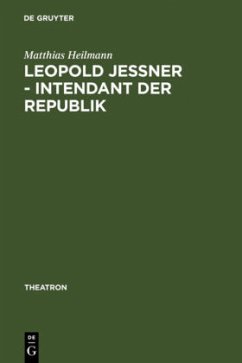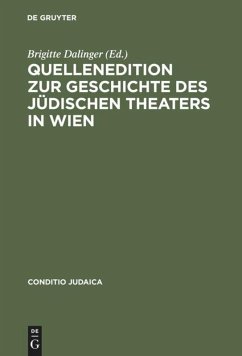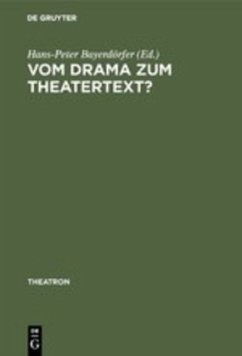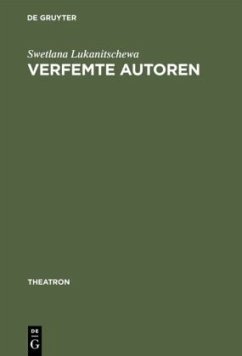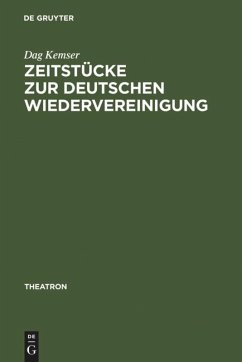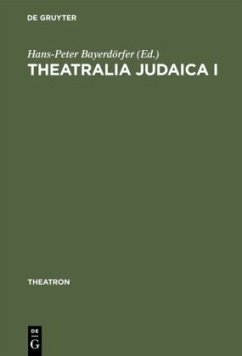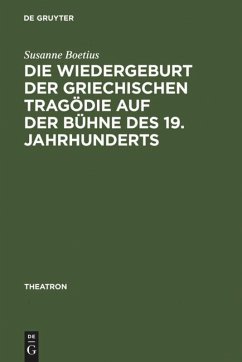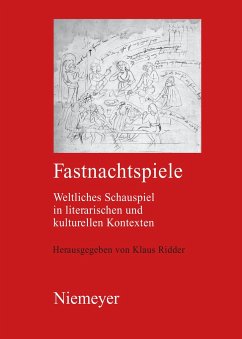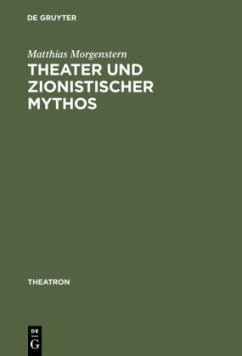
Theater und zionistischer Mythos
Eine Studie zum zeitgenössischen hebräischen Drama unter besonderer Berücksichtigung des Werkes von Joshua Sobol

PAYBACK Punkte
0 °P sammeln!
This study discusses the emergence of 'Israeli realism' in the theatre in terms of the confrontation with Judaic traditions of art criticism and the thematization of history. In line with the 'dramatic' perception of reality prevalent in Israeli theatre, history is viewed as an impulse that furthers an engagement with the phenomenon of drama and the theatre. With reference to three major themes (war of independence, role of women, Holocaust) and the work of Joshua Sobol (*1939), the author shows how the treatment of history on the stage contributes to a 'deconstruction' of the Zionist myth.
Anhand ausgewählter Stücke israelischer Autoren zeigt diese Studie, wie in der Konfrontation mit den kunstkritischen Traditionen des Judentums und durch die Thematisierung der Geschichte eine Dramatik des "israelischen Realismus" (Gershon Shaked) entstanden ist, die Spuren der Auseinandersetzung mit einer hemmenden religiösen Tradition bewahrt hat und das israelische Theater auch deshalb als "verspätetes Theater" zu erkennen gibt. Da in seinem Umfeld eine "dramatische" Wahrnehmung der Wirklichkeit vorherrscht, kommt in ihm die Geschichte als ein das Dramatische fördernder Impuls zur Geltung, der sich in der häufigen Selbstthematisierung des Theaters ausweist. Über das herkömmliche "Theater-im-Theater"-Motiv (Pirandellismus) hinausgehend, ist der Mythos (plot) des Dramas hier aber auch kritisch auf den äußeren "Mythos" bezogen, den zionistisch bestimmten Diskurs über die jüdische Geschichte, der in der Leidensgeschichte der Diaspora beginnt, bis zur Gründung des Staates Israelund zum Triumph der zionistischen Bewegung reicht und sich als eine Art säkularisierte Fortschreibung des traditionellen Mythos von "Exil und Erlösung" verstehen läßt. Anhand dreier Themen unterschiedlicher Autoren (der israelische Unabhängigkeitskrieg, die Rolle der Frau im Zionismus, der Holocaust) und im Werk Joshua Sobols (_ 1939) wird gezeigt, wie auf der Bühne geschichtliche Erfahrungen sichtbar werden, die die Eindimensionalität des zionistischen Mythos sprengen und zu seiner "Dekonstruktion" beitragen.




